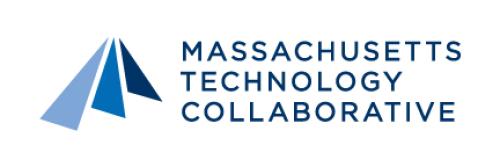BOSTON – The Northeast Microelectronics Coalition (NEMC) Hub announced $1,371,688 in awards to 10 small businesses and startups through its Powering Regional Opportunities for Prototyping Microelectronics (PROPEL) Program. PROPEL accelerates the development and commercialization of groundbreaking microelectronics technologies by helping companies reduce product development and related costs, including device fabrication, software licensing and training, IP patent services, and cybersecurity.
“The NEMC Hub is driving collaboration, innovation and growth across the microelectronics ecosystem through its support for businesses across every sector,” said Massachusetts Secretary of Economic Development Eric Paley. “Investment through the PROPEL Program will offer a competitive edge and lower the costs of bringing products to market. By defraying costs, these companies have the potential to make new breakthroughs and expand their long-term capacity.”
“The PROPEL Program continues to demonstrate our commitment to helping transform groundbreaking innovation into commercial-ready products,” said NEMC Hub Director Mark Halfman. “Congratulations to our latest round of awardees, whose bold visions are driving advancements in critical applications including quantum, photonics, LiDAR, and power management.”
The PROPEL grants were awarded at a NEMC event hosted by MathWorks, a mathematical computing software company. NEMC and MathWorks have also announced a pathway for NEMC startup members to receive free access to MathWorks software tools for up to one year.
Below are the awardees for this round of the PROPEL program with descriptions of their work:
- BioSens8 (Cambridge, MA) – $199,500. BioSens8 is engineering a live data stream of individual health states. Sensing a multitude of biomarkers continuously and in real-time with novel wearables will open the door to health ownership, personalized medicine and proactive, data-driven decisions.
- Brightlight Photonics (Cambridge, MA) – $113,434. Brightlight Photonics is creating chip-scale titanium-sapphire lasers to replace bulky, expensive tabletop systems, lowering costs and enabling portable quantum and biomedical applications.
- EngeniusMicro (Atlanta, GA) – $137,336. EngeniusMicro’s Microsystems division specializes in the design and fabrication of novel microelectromechanical systems (MEMS) devices. They are known most notably for accelerometers capable of withstanding extreme forces. Beyond traditional silicon, the division is advancing manufacturing capabilities of heavy metal doped, ultra-thin aluminosilicate glass and silicon carbide microsystems to support next‑generation inertial and quantum sensing applications.
- Magneton (Neshanic Station, NJ) – $196,862. Magneton is advancing single-photon detection through single-photon avalanche diodes (SPADs) with integrated readout electronics to revolutionize ultra-long-range LiDAR, defense tracking and secure communications.
- Torpedo Therapeutics (Cambridge, MA) – $187,116. Torpedo Therapeutics is developing miniaturized implantable brain-computer interfaces to treat neurological disease with single-neuron precision for less invasive therapies.
- nOhm Devices (Cambridge, MA) – $93,750. nOhm Devices is developing highly efficient cryogenic electronics for quantum computers and sensors, advancing the scalability and adoption of quantum systems.
- Quantum Essentials (Watertown, MA) – $99,492. Quantum Essentials designs and manufactures cryogenic components for superconducting quantum computers with a multi-stage Traveling-Wave Parametric Amplifier (mTWPA) that integrates reverse isolation with low-noise amplification for scalable, cost-effective qubit readout.
- Rugged MicroPower (Burlington, VT) – $53,622. Rugged MicroPower is tackling power management challenges in extreme environments such as low-earth orbit through gallium nitride high electron mobility transistors (GaN HEMTs), power management ICs (PMICs) and Systems-in-Package (Power SiPs).
- Vertical Horizons (Somerville, MA) – $200,000. Vertical Horizons is commercializing 8-inch vertical gallium nitride (GaN) Fin Field-Effect Transistors (finFETs) to overcome energy bottlenecks in AI data centers and high-demand applications.
- Wober Tech (Topsfield, MA) – $80,576. Wober Tech is revolutionizing vision technology by enabling ultra-compact, low-cost, AI-enabled multispectral imaging for consumer, medical, commercial and industrial markets. In addition, Wober Tech’s technology is expanding light detection beyond traditional red, green and blue (RGB) to a full spectrum from UV to infrared, unlocking insights and capabilities that will transform how humanity sees the world.
The latest round of PROPEL awards builds upon several major investments made through NEMC in 2025, including:
- $10 million in SCALE Capital Program awards to 10 Massachusetts-based projects to fund the purchase of critical microelectronics equipment
- $3.4 million was awarded to the University of Vermont to establish a new GaN (Gallium Nitride) microelectronics test lab in South Burlington. The lab is the first of its kind in New England.
- $1.43 million in PROPEL Program awards to 19 microelectronics startups and small businesses throughout the Northeast.
About the NEMC Hub
The Northeast Microelectronics Coalition (NEMC) Hub is a network of over 280 organizations including commercial and defense companies, leading academic institutions, federally funded R&D centers (FFRDCs), and startups concentrated in eight Northeast states. Established in 2023, the Hub is one of eight regional Microelectronics Commons Hubs working to expand the nation’s global leadership in microelectronics and accelerate domestic semiconductor prototyping. The NEMC Hub is a division of the Massachusetts Technology Collaborative and was established under the Microelectronics Commons program and executed through the Naval Surface Warfare Center Crane Division (NSWC Crane) and the National Security Technology Accelerator (NSTXL). The Hub fosters a vibrant, connected microelectronics ecosystem to provide sustainable lab-to-fab enablement, boost education and workforce development, and spur new jobs.
Learn more at nemicroelectronics.org.
###
